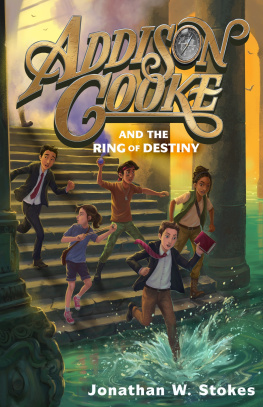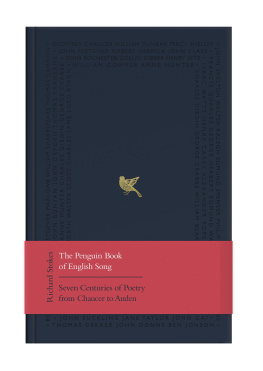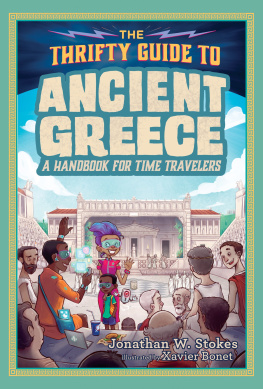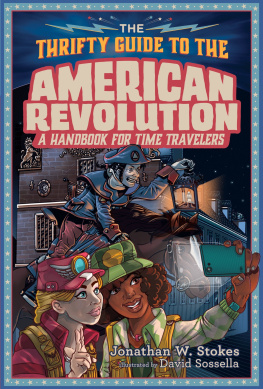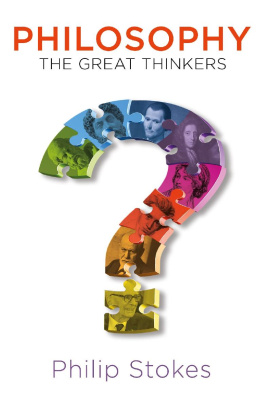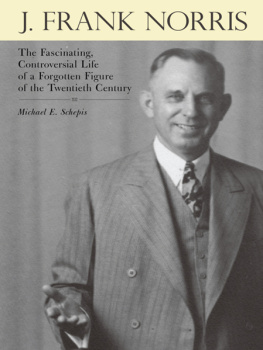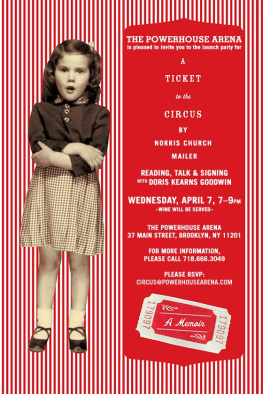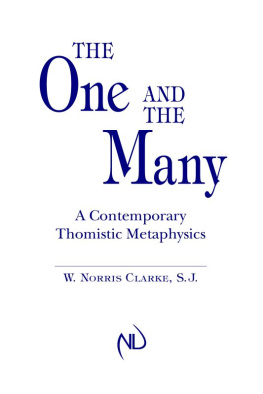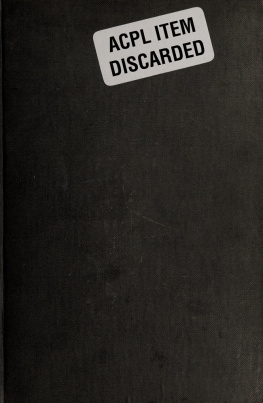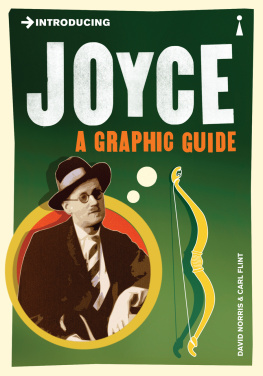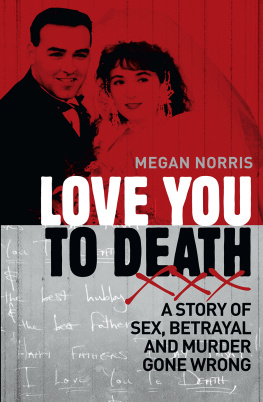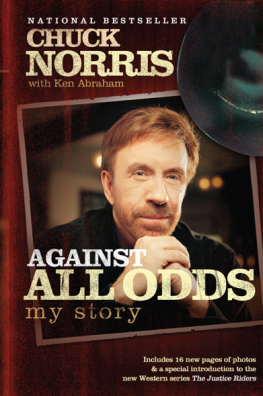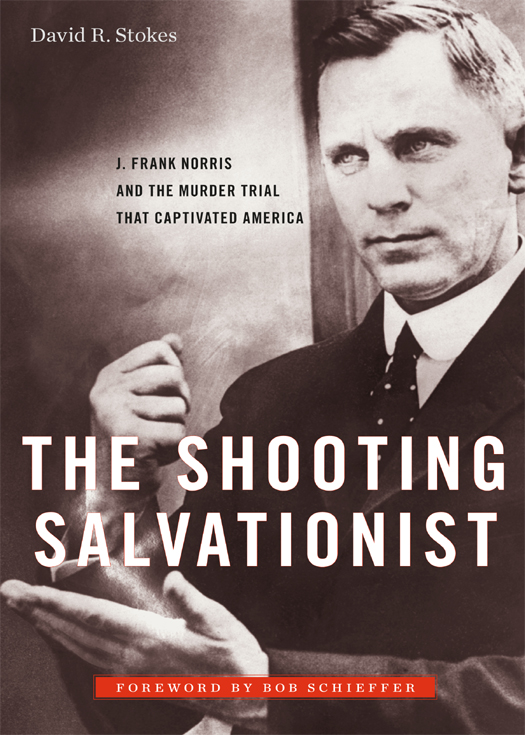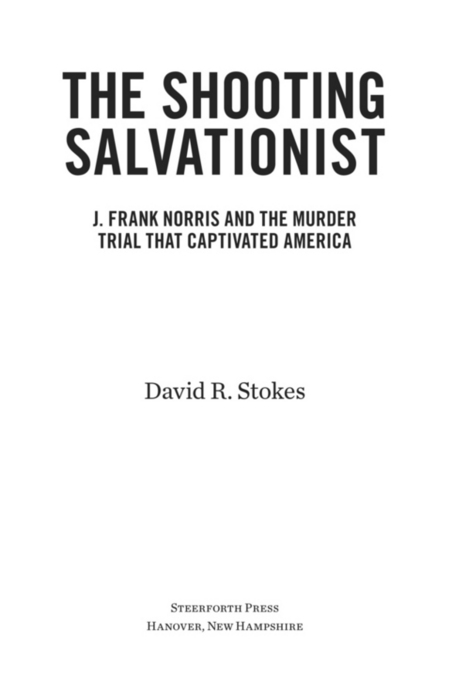Copyright: 2011 David R. Stokes
ALL RIGHTS RESERVED
For information about permission to
reproduce selections from this book, write to:
Steerforth Press L.L.C.
45 Lyme Road, Suite 208, Hanover, NH 03755
Library of Congress Cataloging-in-Publication Data:
Stokes, David R.
The shooting salvationist : J. Frank Norris and the murder trial that captivated America / David R. Stokes.
p. cm.
eISBN: 978-1-58642-189-2
1. Norris, J. Frank (John Frank), 1877-1952. 2. Baptists--United States--Clergy--Biography. 3. Trials (Murder)--Texas--Fort Worth. 4. First Baptist Church (Fort Worth, Tex.)--History. 5. Fort Worth (Tex.)--Church history. 6. Fundamentalism--United States--History. I. Title.
BX6495.N59S69 2011
286.1092--dc22
[B]
2011015168
v3.1
For Karen, my wife and best friend,
who has always believed in me.
We dont always read the same books,
but we are forever on the same page.
Contents
AUTHORS NOTE
THIS BOOK CHRONICLES what is probably the most famous story youve never heard. But at the time it happened, it was page-one news across America.
The Shooting Salvationist is not merely based on a true story it is a true story. Everything appearing in quotes in this book comes from a newspaper, magazine, court record, archived collection of personal papers, or other published work. The words of the characters have not been imagined or contrived, but are presented verbatim as they appeared in other private or published documents. In A Note on Sources at the end of the book, I discuss the various works and records from which I have drawn detail and dialogue.
One word for the reader for whatever reason, it was a very common thing several decades ago for men to use their initials in the place of full names. Whenever possible Ive tried to locate the full names of people appearing on the pages of this book, though many records from back then only use initials. Also, dialogue obtained from trial transcripts is reproduced here verbatim. Some of the language is colloquial, crude, and grammatically awkward, but it was the language of that moment.
J. Frank Norris was in many ways a gifted and unique man. But his personal values and code of conduct ultimately ensured that whatever gifts he had would be overshadowed by outrageous and egregious behavior and its consequences. This story is a sobering reminder that any cult of personality whether in the religious, entertainment, business, or political realm is fraught with peril.
David R. Stokes
Fairfax, Virginia
November 2010
CAST OF CHARACTERS
John Franklyn J. Frank Norris. A fiery fundamentalist pastor during the Roaring Twenties, Norris had a penchant for controversy and sensationalism that brought him fame and fortune, not to mention several criminal indictments along the way. His abilities as an orator and organizer drew thousands into his orbit, but his intemperate and often violent tendencies ensured that he would never be accepted as a mainstream religious leader in America a role he craved. He built his church, First Baptist in Fort Worth, Texas, into what was for a time one of the largest in the world. It was Americas first megachurch.
Henry Clay H.C. Meacham. The first mayor of Fort Worth, Texas, under a new city charter approved in 1924, Meacham had already made a name for himself as the owner of one of the citys most successful department stores. His tenure as mayor would be marked by conflict with J. Frank Norris, who never heeded the adage You cant fight city hall.
Ossian E. O.E. Carr. Hired as the first city manager for Fort Worth under the new charter, he brought to the city on the Trinity River vast managerial experience. One of his specialties was to find ways to collect new revenue for municipalities, even if it meant raising taxes or looking for those who, in his opinion, had not paid a fair share. He wasnt on the job very long before he started examining J. Frank Norriss enterprises.
Amon G. Carter. The wealthy and powerful owner of the Fort Worth Star-Telegram, as well as radio station WBAP, was Fort Worths chief booster in the 1920s. He and a tight-knit band of unofficial oligarchs virtually ran Fort Worth in those days from the elegant confines of the Fort Worth Club. One of the few newspaper owners to beat William Randolph Hearst at his own game, Carter was the citys first media baron.
Dexter Elliott D.E. Chipps. A wealthy lumberman who ran a successful wholesale business from his offices in Fort Worths Wheat Building, Chipps was a proud member of the Fort Worth Club. He and Mayor Meacham became close friends.
Mae Chipps. The estranged wife of D.E. Chipps had long hoped she could be reconciled with her husband for the sake of their fourteen-year-old son, Dexter Elliott Jr. She had never stopped loving Mr. Chipps.
Lillian Gaddie Norris. A pastors wife, strong, and passionate, Mrs. Norris was a full partner in life and work with her lightning rod of a husband.
Jane Miss Jane Hartwell. The devout daughter of Baptist missionaries, Miss Jane, as she was known, was Norriss secretary, office manager, and gal Friday. She carried herself with a slightly aristocratic air and was referred to at times as the generalissimo. Hartwell was, above all, a fierce defender and guardian of her pastor, someone who would do just about anything for him.
Marcet Haldeman-Julius. One of the most famous journalists of the era, Marcet was the co-publisher of a highly popular monthly journal, the Haldeman-Julius Monthly better known as The Little Blue Books which sold millions of copies in the 1920s.
Jack Gordon. As popular writer for the Fort Worth Press, Gordon provided readers color and detail about Norris and his antics. This was possible because the preacher seemed to be willing to talk to him. Gordon never figured out why, but he was just glad to have access.
W.P. Wild Bill McLean. One of the best-known lawyers in the American Southwest in the 1920s, he was known for his colorful and highly effective courtroom methods. He also hated J. Frank Norris.
Dayton Moses. A highly popular Texas lawyer, he put his reputation on the line to defend J. Frank Norris. The standoff between Moses and McLean became a story itself.
Lloyd P. Bloodworth. J. Frank Norris persuaded Bloodworth, a longtime Methodist minister, to become a Baptist. Norris ultimately ordained him and placed him on the First Baptist Church payroll. He also happened to be the Grand Dragon of the local chapter of the Ku Klux Klan.
William Jennings Bryan. The Great Commoner, as he was known, was in the twilight of his career when he visited J. Frank Norris and First Baptist Church. He was clearly impressed with the ministry and the minister. Norris cultivated, some might say exploited, a relationship with Bryan. And when Bryan died, J. Frank Norris sought his mantle as Americas premier fundamentalist leader.
FOREWORD
WHEN I WAS growing up in Fort Worth, they used to tell us, Fort Worth is where the West begins, and for years that motto was emblazoned across the top of our hometown newspaper, the


